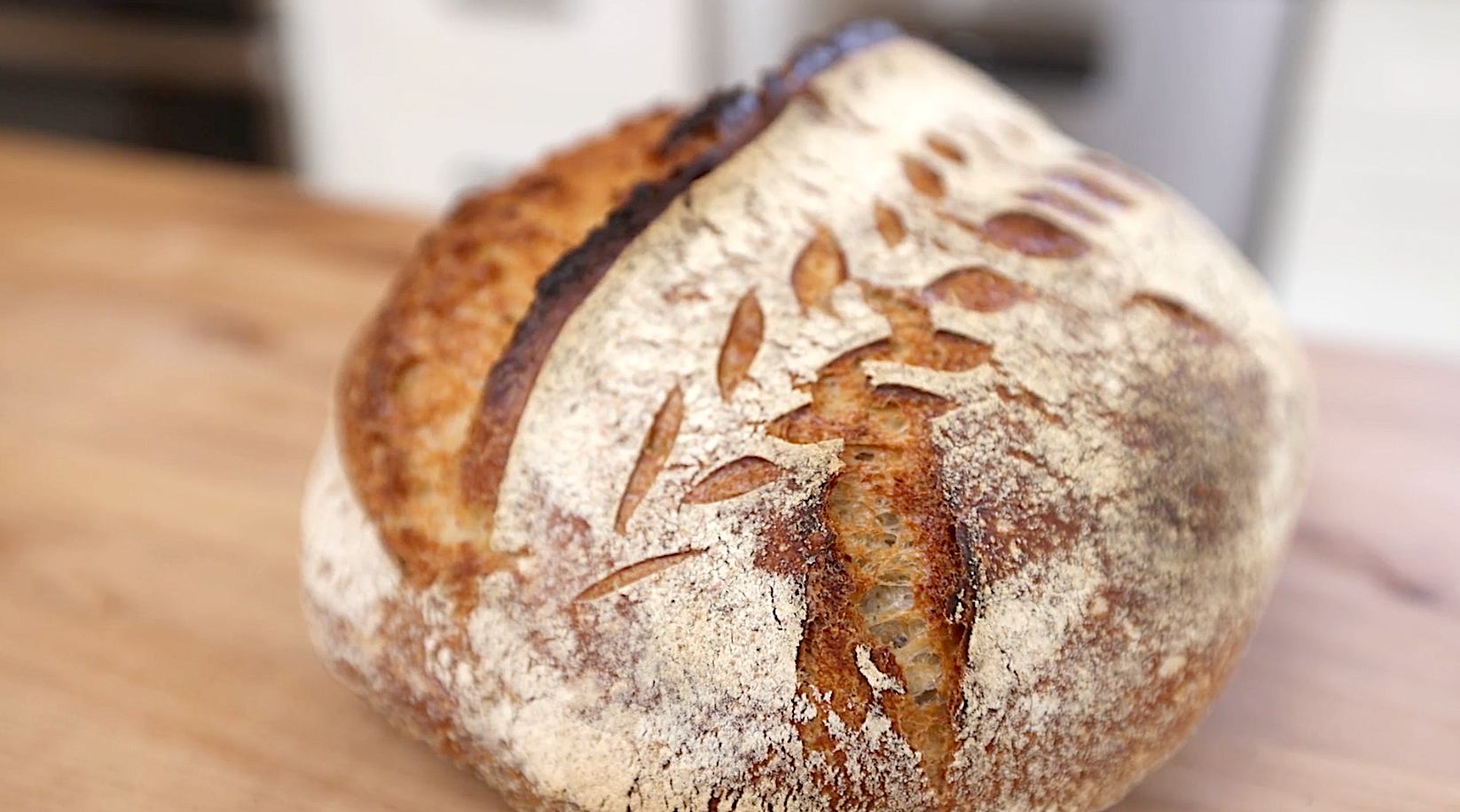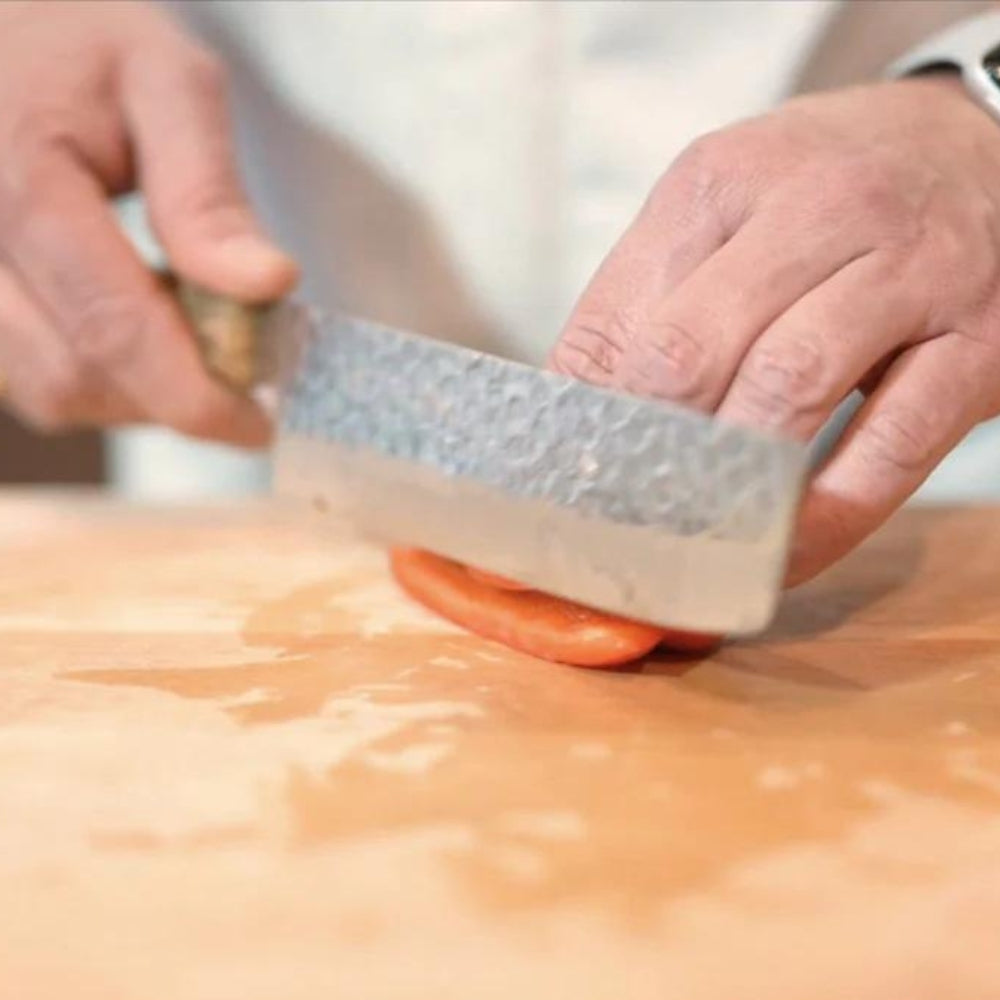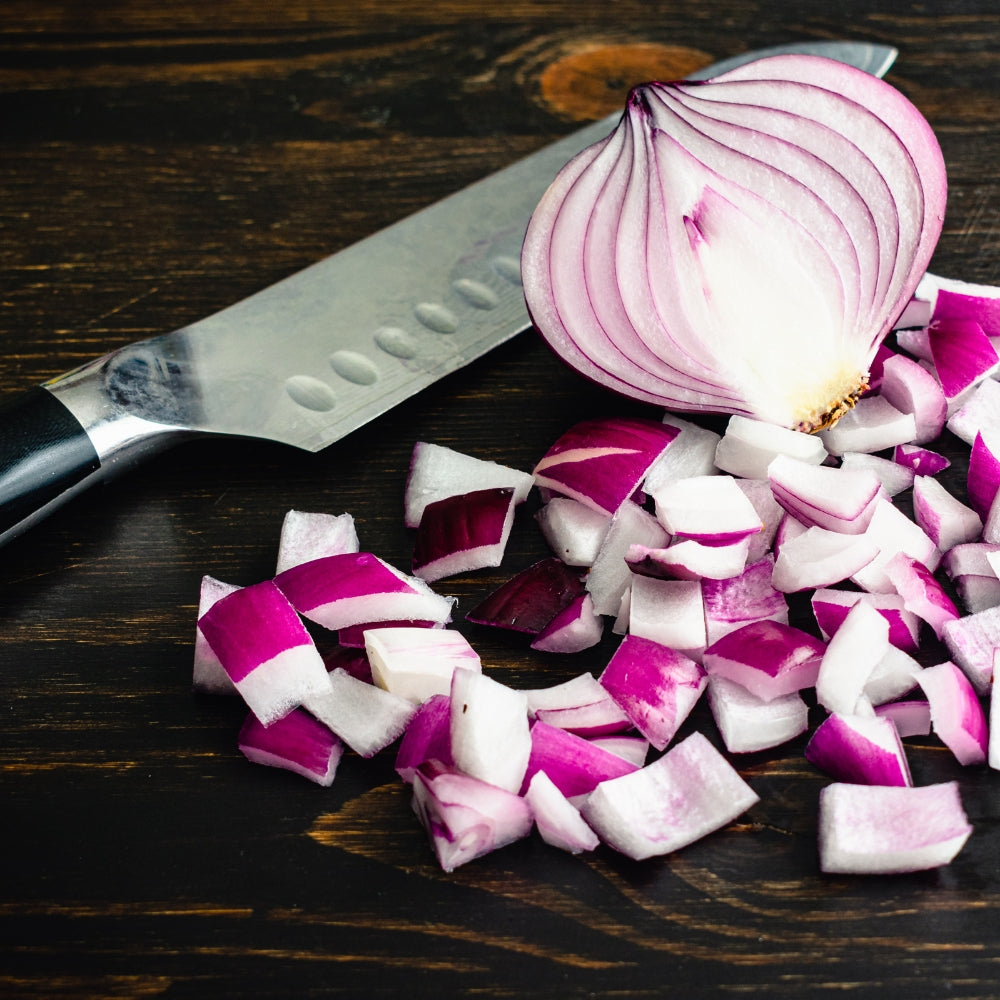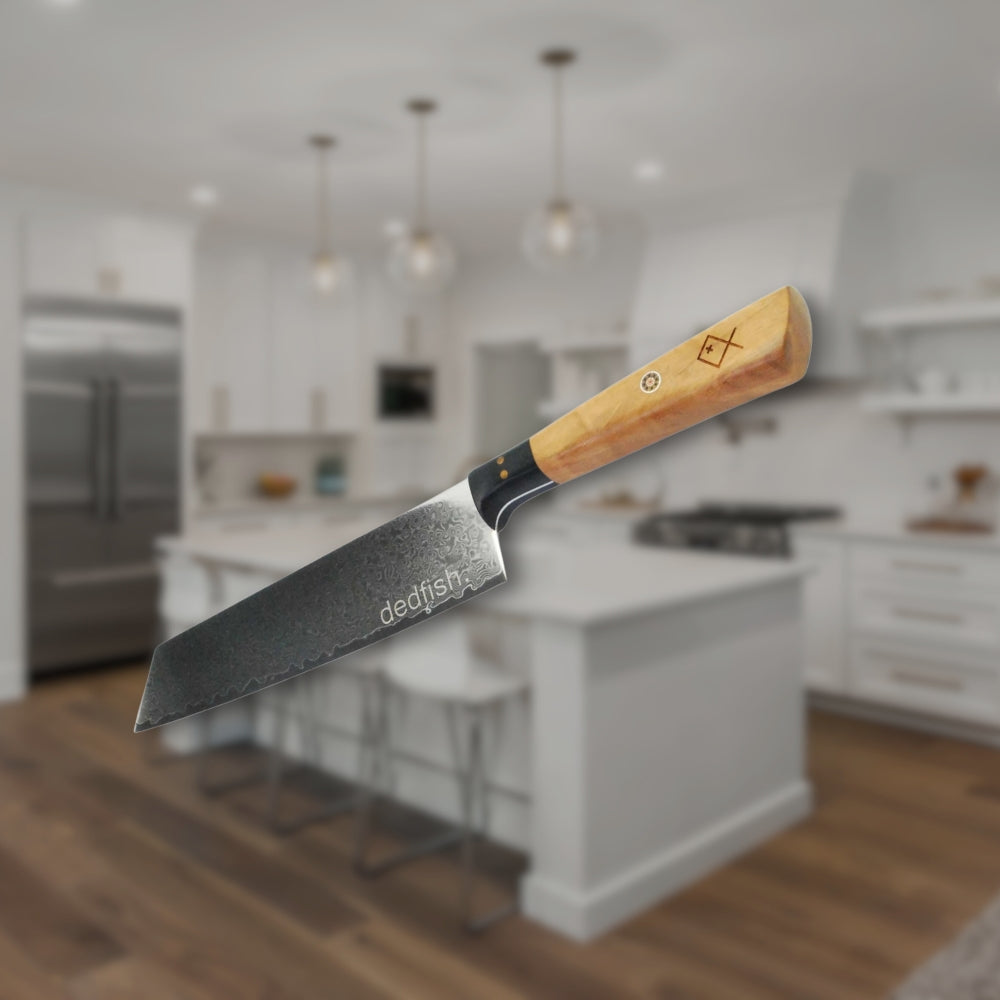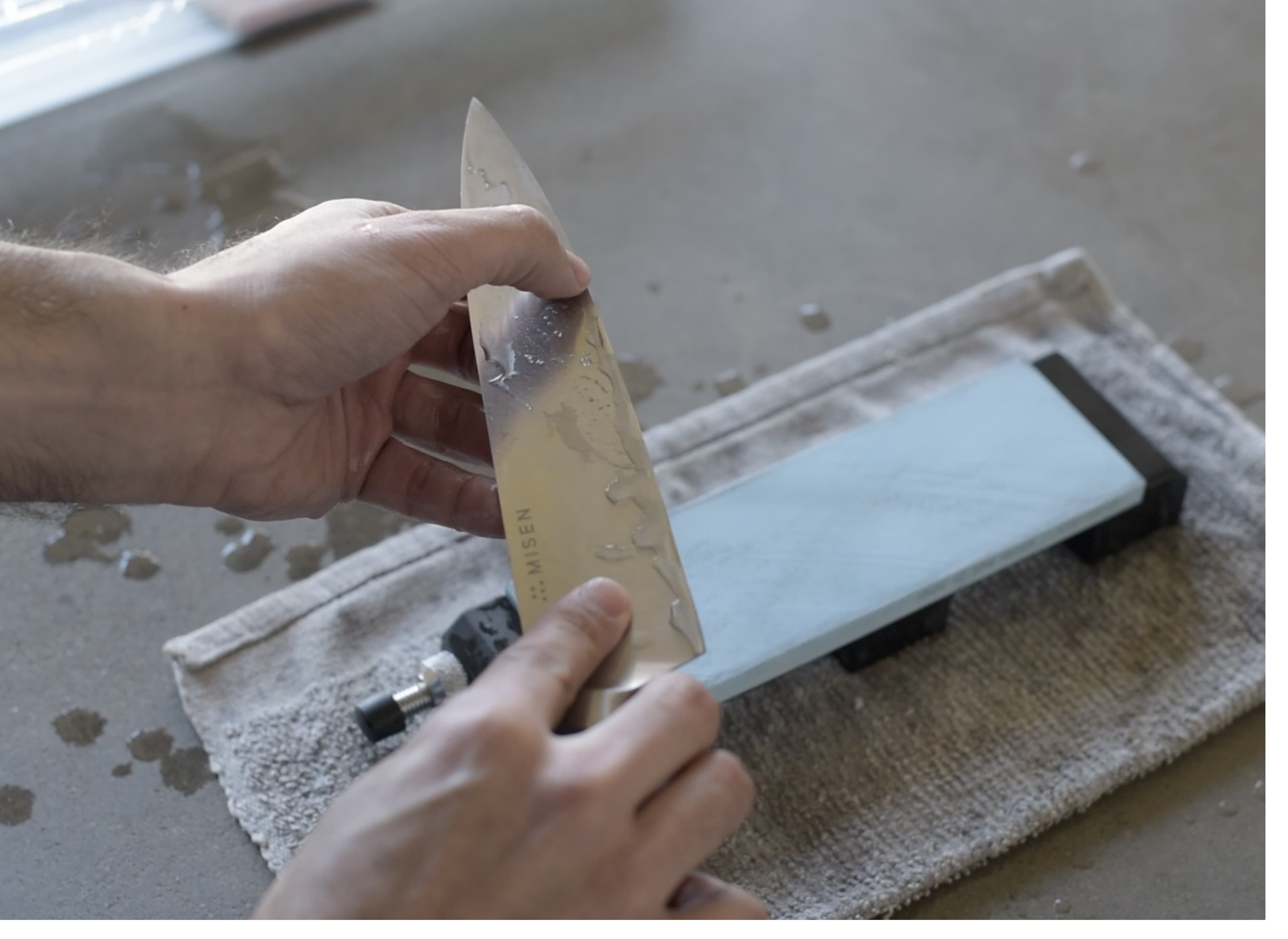
Revitalize Your Blades: Removing Rust Off Kitchen Knives Easily
By Andrew Sahatjian
Senior Food Writer at Pro Home Cooks
Whether you're a seasoned chef or a home cook, knowing how to get rust off kitchen knives is an essential skill. Rust can sneak up on your favorite blades, dulling their shine and performance.
The sight of those orange-brown spots might be disheartening at first. But don't worry - there are several easy methods to bring back the sparkle in no time.
Maintaining the rust-free condition of your knives is not only important for their aesthetic appeal, but also essential to ensure safety and hygiene. We will then explore some tried-and-true techniques that make getting rid of stubborn knife rust a breeze.
No matter how well-crafted or expensive your cutlery set may be, learning how to get rust off kitchen knives ensures they remain in top shape for years. So let's roll up our sleeves and restore
Ready to elevate your culinary game? Dive deeper into our top picks and discover the best in cookware. Check out our kitchen knives!
- Understanding the Causes and Effects of Rust on Kitchen Knives
- Preparing for Rust Removal from Kitchen Knives
- Revitalize Your Blades: Removing Rust Off Kitchen Knives Easily
- Revitalize Your Blades: Removing Rust Off Kitchen Knives Easily
- Innovative Methods for Removing Knife Rust
- Leveraging Commercial Products for Knife Rust Removal
- Revitalize Your Blades: Removing Rust Off Kitchen Knives Easily
- Preventing Future Rust Formation On Kitchen Knives
- Revitalize Your Blades: Removing Rust Off Kitchen Knives Easily
- FAQs in Relation to How to Get Rust Off Kitchen Knives
- Saving Your RustConclusion
Understanding the Causes and Effects of Rust on Kitchen Knives
You've probably noticed those little orange spots that show up on your kitchen knives over time. Yes, we're talking about rust formation. It's a common issue if you don't wipe off water thoroughly after cleaning or using your knife.
Dirt is another sneaky culprit in this scenario. Not removing it properly can fast-track the rusting process - even innocent food particles left behind can do some damage.
Causes of Rust Formation
Rust formation, believe it or not, has a lot to do with where you store your knives. Damp places or high humidity zones are prime real estate for moisture build-up – one of the main causes of our rusty problem.
And here’s something else: transferred rust from other objects like tongs or spatulas used alongside your knife during cooking activities can contribute to this too.
Potential Damage Caused by Rust
Rust isn’t just an eyesore; it's more than skin deep when it comes to damaging effects on our beloved blades. The most noticeable? Your knives becoming brittle and prone to chipping – say goodbye to their long lifespan.
A dull blade is also part and parcel with prolonged exposure to rust. This makes tasks like chopping veggies or slicing meat less effective, taking away from the joyous experience that home cooking should be. So let's get proactive about keeping our tools sharp and ready for action.
Preparing for Rust Removal from Kitchen Knives
To effectively combat these issues head-on, understanding how best to prepare ourselves before beginning any cleaning regimen becomes paramount.
Revitalize Your Blades: Removing Rust Off Kitchen Knives Easily
Discover how to get rust off kitchen knives using simple methods. Restore your blades' shine and sharpness with our easy, step-by-step guide.
Preparing for Rust Removal from Kitchen Knives
The journey to rust-free kitchen knives begins with the right tools and a touch of preparation. Your toolbox should include essentials like baking soda, white vinegar, water, a scrub brush or sponge, and don't forget safety gloves. Remember that even your trusty steel kitchen knives can fall victim to rust over time without proper care.
Cleaning Your Knife Before Rust Removal
A clean knife is the best starting point for effective rust removal. Whether you're using methods such as a baking soda paste or white vinegar soak (more on these later), ensuring your knife is spotless before beginning will make all the difference.
Begin by washing your blade in warm soapy water with a soft cloth or sponge - this isn't just about hygiene but also removing any grime that could interfere with the de-rusting process. And remember: avoid abrasive cleaners at all costs; they may scratch your blade's surface leading to further oxidation down the line.
Drying thoroughly after cleaning is crucial too since leaving it wet encourages new layers of unwanted oxide layer underneath already existing ones thereby worsening the situation rather than improving upon the previous state of affairs.
Gathering Necessary Materials for Rust Removal
In order to remove stubborn stains effectively without causing unnecessary harm to either yourself or the utensil involved throughout the procedure, certain tools and supplies are required. These are generally household items that you most likely already possess lying around somewhere within the confines of your home. Hence, acquiring them shouldn't pose much difficulty, especially given the fact that many alternative options are available depending on individual preferences and circumstances surrounding the specific case at hand. Here is a comprehensive list of the essential components needed to carry out the task successfully:
- Baking Soda: This pantry staple isn't just great for making cookies rise – it's also an excellent ally in our fight against stubborn rust spots.
- And don't forget about Vinegar.
Restoring your rusty kitchen knives back to their prime doesn't require a professional touch, just the right household items and a bit of elbow grease. Begin with cleaning your knife thoroughly before starting any rust removal process. Utilize simple ingredients like baking soda or white vinegar for effective de-rusting, but remember to avoid abrasive cleaners that can scratch your blade's surface.
Revitalize Your Blades: Removing Rust Off Kitchen Knives Easily
Your kitchen knives are more than just tools; they're an investment. However, rust can tarnish their value and efficiency.
Using Baking Soda Paste for Rust Removal
The good news is that your everyday baking soda can be a knight in shining armor against stubborn knife rust. Mix baking soda and water in equal parts to create a paste, apply it onto the rusty areas of your knife, wait 15 minutes then gently scrub with something like a toothbrush or scouring pad for an effortless rust removal experience.
This process involves no harsh chemicals or complicated procedures - just plain old rust removal with baking soda paste. It’s as easy as pie, but don’t take our word for it. Dive into this detailed guide from SFGATE Home Guides, where you'll find more tips on making the most out of this method.
Utilizing White Vinegar Soak as a Rust Remover
If you thought vinegar was only good for pickling cucumbers or dressing salads, think again. The acidic properties in white vinegar make it an effective agent against extensive rust issues. A white vinegar soak for rusty knives makes quite the impact.
To utilize this method, simply immerse your affected blades into undiluted white vinegar, leaving them to bathe for about five hours before wiping off any remaining residue using a cloth or sponge. Reader's Digest digs deeper into how you can incorporate household items such as these when dealing with pesky kitchen problems like rust.
Don't let rust ruin your kitchen investment. Use everyday heroes like baking soda paste or a white vinegar soak to restore your knives' shine and efficiency. Simple, chemical-free, and surprisingly effective – it's time to roll up those sleeves and tackle that stubborn rust.
Innovative Methods for Removing Knife Rust
Dealing with knife rust can be a real downer. But fear not. There are innovative and natural methods to combat this issue using simple household items like lemon juice and salt, or even vegetables such as potatoes.
Using Lemon Juice and Salt

The combination of lemon juice and salt may not be a modern technological innovation, but it sure does pack a punch when it comes to tackling pesky rust on your kitchen knives. The acidic properties of lemons, combined with the abrasive nature of salt, form a powerful combination that can be easily made in your own kitchen.
To create this rust-fighting potion, simply squeeze fresh lemon juice into a bowl and mix in equal parts salt until they blend into a paste-like consistency. Apply this mixture to the rusty spots on your blades using an old toothbrush or cloth. The power of lemon juice mixed with salt will amaze you as those stubborn rusty patches start to disappear from your beloved kitchen tools.
Gently scrub off the mixture after letting it sit for around 15-20 minutes under warm water. You'll soon see why we're raving about this method once you notice the rust fading away.
Trying Potatoes Against Knife Rust
If you have some potatoes lying around, why not use them to fight back against stubborn rust? It may sound strange, but potatoes contain high levels of oxalic acid, which acts as an excellent natural rust remover.
To use potatoes for rust removal, simply cut a potato in half and dip one end into baking soda or dish soap. Rub the potato onto the rusty areas of your knife. Repeat this process until every last trace of rust has been wiped clean from the blade's surface. It's amazing how useful certain vegetables like potatoes can be when it comes to removing rust from knives effectively.
Leveraging Commercial Products for Knife Rust Removal
While our home-made solutions have been great, there's always room for more progress. Let's keep pushing the envelope together.
Got rusty knives? Don't fret. A homemade paste of lemon juice and salt or even a humble potato can be your secret weapon against stubborn rust. Just apply, let sit, then scrub off to reveal gleaming blades once more. If DIY isn't your style, there's always commercial products that pack a punch too.
Revitalize Your Blades: Removing Rust Off Kitchen Knives Easily
Imagine this: You're about to slice into a juicy steak, but your knife is tarnished with rust. Not exactly the culinary experience you were hoping for, right? Thankfully, there are commercial products that can help rescue your knives from such predicaments.
Opting For Whetstone Erasers To Combat Knife Rust
Consider using whetstone erasers - small tools packed with power. They're made of rubber and sharpening compounds, specifically designed to tackle those stubborn rusty spots on your blades like champs. Picture using these little warriors against knife rust; their compact form allows them to scrape off even the most tenacious rust without leaving any damage behind.
The secret lies in their composition, which ensures high effectiveness while being gentle on your precious cutlery. Now isn't that an ally worth having in our kitchen battles?
Specialized Products For Stubborn Knife Rust
Let's not stop at just whetstone erasers though. The market teems with specialized products tailored explicitly for fighting off persistent knife rust.
Remember this golden rule when using these products: Always adhere strictly to manufacturer guidelines. While they work wonders at eliminating pesky rust stains, improper usage could lead to damaging effects or potential health risks during food preparation.
Preventing Future Rust Formation On Kitchen Knives
Moving forward, it’s essential not only to know how to remove existing knife rust but also how to prevent future formation altogether.
Revitalize Your Blades: Removing Rust Off Kitchen Knives Easily
Preventing Future Rust Formation On Kitchen Knives
Your kitchen knives, those indispensable culinary tools you wield every day, deserve the best care. Proper storage conditions and regular cleaning routines are vital for maintaining their edge and shine.
Rust formation on your blades can be a real party pooper. It not only mars the look of your precious cutlery but also affects its performance.
Importance Of Regular Cleaning Routines
The fight against rust begins with an unwavering commitment to cleanliness. After use, thoroughly wash your knives with warm soapy water to remove any food particles or acidic substances that may have adhered.
Rust is like that uninvited guest who shows up when moisture overstays its welcome on your metal surfaces. Therefore, making sure you dry off all wetness from your knives as soon as they're washed can drastically reduce chances of rusty gatecrashers ruining the party.
A key statistic worth remembering here: adopting regular maintenance practices such as immediate drying post-cleaning helps prevent future unsightly rust spots from forming on your prized kitchen tools.
Role Of Protective Coatings In Preventing Knife-Rust
Moving beyond mere cleaning and drying routines, let's talk about protective coatings - another powerful weapon in our anti-rust arsenal. However, beware. Not everything that glitters is gold.
In our quest for protection against oxidation (the scientific term for rust), we often come across suggestions advocating the use of WD-40 or mineral oil; however these aren't recommended due to potential health hazards if accidentally ingested.
No need to despair though. There exist safer alternatives out there which serve similar purposes without compromising safety standards. Please always remember this golden rule: whatever goes onto cutlery should be safe enough even upon incidental ingestion.
Keeping your kitchen knives rust-free requires more than just a wash and dry routine. It's about providing TLC - from immediate drying post-cleaning to safe protective coatings, ensuring no unwanted 'rusty gatecrashers' spoil the party. Remember, cleanliness is next to godliness for maintaining their edge and shine.
FAQs in Relation to How to Get Rust Off Kitchen Knives
How to Remove Rust from Kitchen Knives
Are your kitchen knives suffering from unsightly rust spots? Don't worry, there are simple methods you can use to restore their shine and sharpness. Let's explore how to get rust off kitchen knives using household items and commercial products.
Using Household Items
If you prefer natural solutions, you can try using baking soda paste, a white vinegar solution, or a combination of lemon juice and salt. These ingredients have rust-fighting properties that can help scrub off the rust from your knives. Simply apply the chosen mixture to the affected areas, gently scrub with a soft cloth or sponge, and rinse thoroughly.
Commercial Rust Erasers
If you're looking for a more specialized solution, consider using whetstone rust erasers. These commercial products are designed specifically for removing rust from blades. Follow the instructions provided with the rust eraser to effectively eliminate the rust from your kitchen knives.
Can Stainless Steel Knives Get Rusty?
Contrary to their name, stainless steel knives can still develop rust spots over time. However, you can use the same methods mentioned above to remove rust from stainless steel knives. Whether your knives are stainless steel or not, these techniques will help restore their pristine condition.
Understanding rust and its impact on kitchen knives is the first step towards maintaining a sharp and shiny arsenal.
The right tools can make all the difference in safely and effectively removing rust.
There are various methods available to restore your blades' glory, from using a baking soda paste to a white vinegar solution.
For those tough spots, tried-and-true tricks like the potato slice method can come in handy.
To prevent knife rust, it's important to maintain good storage conditions and establish regular cleaning routines.
In essence, learning how to remove rust from kitchen knives involves practical solutions and preventative measures for long-lasting results.
Transform your kitchen experience with the best tools handpicked by Mike. Don't miss out on these essentials. Check out our top selections now!
TOP ARTICLES

Sourdough Baking School
Master the art of sourdough bread baking in the most comprehensive baking class on the internet. This class features over three hours of baking content to help you start your sourdough journey.
See More
